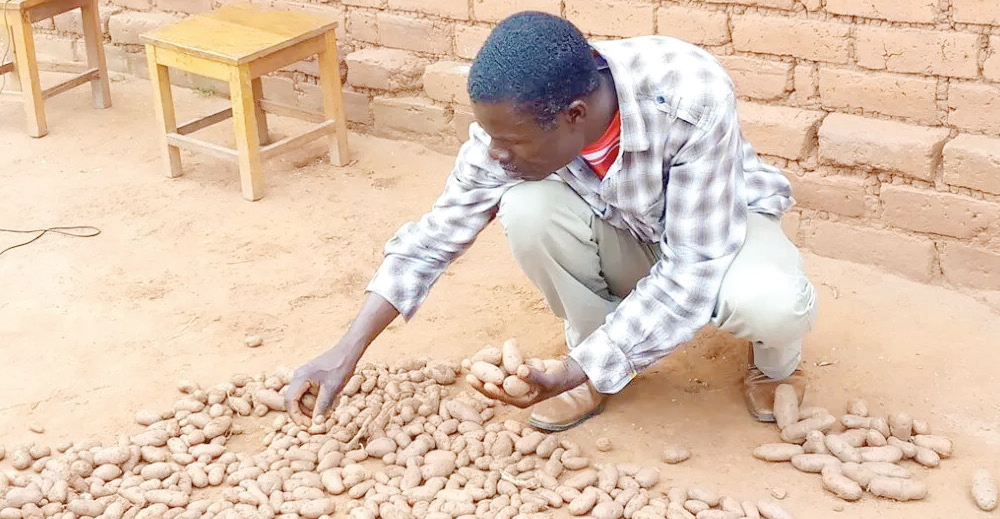Saving farmers from tricky middle persons
When Irish potatoes are ready for harvesting, intermediaries come with massive bags and “funny prices” to reap where they did not sow.
Fearing that their harvest would perish, farmers sell their crop on the cheap without a say.

Richard Kanyoza, from Traditional Authority Mpando in Ntcheu, laments that some mobile buyers take months without paying for the potatoes they get on credit.
He narrates: “When it’s time to pay, some lower the prices beyond what we agreed in the first place.
“They don’t use recommended scales. We use their sacks as a measurement and they fill them to their liking.”
Most farmers remain in poverty as the middlepersons buy a bag of over 50 kilogrammes at K5 000, leaving them with little or no profit for their toil and exorbitant farm input.
Unfortunately, local processors likely to add value to the fresh produce also have their own stories to tell.
Daniel Chisoso, who processes crisp for sale on the roadside in Dedza, says he finds it difficult to sell his product due to low prices and lack of reliable markets.
“We buy just a small amount because we sell our crisp along the M1 to people in buses. We don’t have proper equipment to produce and preserve large amounts,” he says.
Recently, the Root and Tuber Crops Development Trust and Programme for Rural Irrigation Development (Pride) brought together players in the industry to network and strengthen access to reliable markets. They included representatives of farmers, Department of Agriculture Research and Development Services, Ministry of Trade, supermarkets, hotels and agro-processors.
During the symposium held in Blantyre, Jean Pankuku, the trust’s board chairperson, commended researchers for working hard to develop potato varieties that meet what farmers, processors and the market are looking for.
She stated: “For the past 10 years, production has been increasing, so has been the usage in terms of value-addition.
“A number of products have been developed from potatoes and tubers, but farmers still lack reliable and profitable markets simply because they are not directly connected to potential markets. Rather, they still deal with middlemen and conmen. So we met to come up with possible solutions.”
According to the International Potato Centre (CIP), Malawi is one of the largest producers of Irish potato in Sub-Saharan Africa.
Although it produces 4.5 million tonnes a year, main supermarkets in the country still import the crop. The think-tank reports that most of the produce is consumed locally, with tiny fraction smuggled to neighbouring Mozambique, Tanzania and Zambia.
Supermarket and hotels owners said they prefer imported potatoes because local ones are marred by poor quality and inconsistent supply.
“We are working with the trust to ensure that farmers should find market first before producing. This will help them to produce the quality and quantities the viable buyers are looking for,” Pride’s project coordinator Munday Makoko explained.
Pride envisages the production of root and tuber crops in the country increasing through the construction of irrigation schemes for farmers to grow high-value crops, including Irish potatoes, three times a year.
Limbikani Kachiwaya, deputy director responsible for small and medium enterprises in the Ministry of Industry, encouraged farmers to form cooperatives for easy access to capital, farm inputs, training and markets.
He said most farmers hardly reap the full benefits of their labour and keep facing preventable problems because they work individually.
“We want to work with cooperatives so that they should be able to offer quality products. Finding markets with good prices comes together with the quality products,” he said.
Kachiwaya said the Ministry of Industry has formed a special committee to tackle the use of uncharted routes used by traders to smuggle farm produce.





